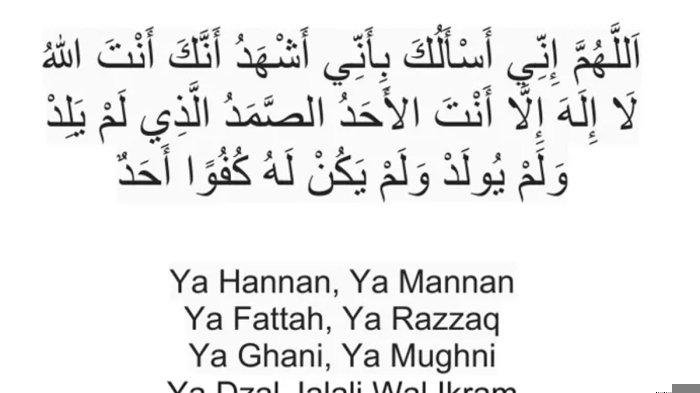Understanding the meaning of “ya hannan ya mannan ya fattah ya rozak ya ghoni ya mughni” opens a doorway to profound spiritual insights. These names reflect the attributes of God, each carrying a unique significance that resonates deeply with believers.
As you delve into their meanings, you’ll find hope, mercy, provision, wealth, and sufficiency woven into the fabric of these divine names. Exploring “ya hannan ya mannan ya fattah ya rozak ya ghoni ya mughni artinya” reveals not just definitions but also their impact on faith and everyday life. Each name invites reflection and a deeper connection to spirituality.
“`html
Understanding Ya Hannan Ya Mannan Ya Fattah Ya Rozak Ya Ghoni Ya Mughni Artinya
In the rich tapestry of Islamic spirituality, phrases and names carry significant meaning and importance. Among these are the names Ya Hannan, Ya Mannan, Ya Fattah, Ya Rozak, Ya Ghoni, and Ya Mughni. These names are derived from Arabic, each representing a unique attribute of Allah (God) in Islamic belief. Understanding these names not only enhances one’s spiritual knowledge but also deepens the connection to the divine. This article explores the meanings and attributes associated with each of these names.
Ya Hannan: The Compassionate One
Ya Hannan translates to “The Compassionate One.” This name reflects Allah’s infinite mercy and kindness toward His creation.
– **Meaning and Significance**:
– *Hannan* comes from the root word “hanna,” which implies tenderness and affection.
– This name emphasizes how Allah cares deeply for His creatures and displays compassion in countless ways.
– **Practical Application**:
– Believers often call upon Ya Hannan during times of difficulty, seeking comfort and compassion from Allah.
– It encourages a person to be compassionate in their own life, mirroring the kindness of the divine.
Ya Mannan: The Benefactor
Ya Mannan translates to “The Benefactor.” This name signifies Allah’s generosity and the blessings He bestows upon humanity.
– **Meaning and Significance**:
– The term *Mannan* indicates a constant giver who bestows countless blessings without expecting anything in return.
– Allah’s generosity includes everything from the air we breathe to the warmth of the sun, all given freely.
– **Practical Application**:
– In daily life, invoking Ya Mannan reminds believers to express gratitude for the blessings they receive.
– It fosters a mindset of generosity and encourages giving to others, reflecting Allah’s benevolence.
Ya Fattah: The Opener
Ya Fattah translates to “The Opener.” This name represents Allah’s ability to open doors of opportunity and knowledge.
– **Meaning and Significance**:
– *Fattah* derives from the Arabic root meaning to open or to begin.
– This name reflects Allah’s role in providing guidance and making paths clear for believers.
– **Practical Application**:
– People often recite Ya Fattah when seeking guidance in decision-making or during significant life changes.
– It encourages individuals to remain open to possibilities and trust in Allah’s plan for them.
Ya Rozak: The Provider
Ya Rozak translates to “The Provider.” This name highlights Allah’s role as the sustainer of all life.
– **Meaning and Significance**:
– The root word *Razaq* means to provide sustenance and nourishment.
– Allah ensures that every creature has what it needs to survive, from food to love and support.
– **Practical Application**:
– Believers invoke Ya Rozak during times of financial hardship or when seeking new opportunities for income.
– This name encourages reliance on Allah for provision while working towards one’s goals.
Ya Ghoni: The Self-Sufficient
Ya Ghoni translates to “The Self-Sufficient.” This name emphasizes Allah’s independence and completeness.
– **Meaning and Significance**:
– *Ghoni* suggests that Allah needs nothing from anyone; He is complete in Himself.
– This attribute reinforces the understanding that all human reliance on Allah stems from His ultimate sufficiency.
– **Practical Application**:
– Reflecting on Ya Ghoni encourages believers to seek fulfillment from Allah rather than material possessions or status.
– It promotes spiritual independence and the understanding that true wealth lies in faith.
Ya Mughni: The Enricher
Ya Mughni translates to “The Enricher.” This name represents Allah’s ability to enrich the lives of His followers.
– **Meaning and Significance**:
– *Mughni* comes from the root that means to suffice or to enrich.
– This name emphasizes how Allah enriches believers not just materially, but spiritually and emotionally.
– **Practical Application**:
– When struggling with feelings of inadequacy or lack, believers may call upon Ya Mughni for support and enrichment.
– It inspires a mindset of abundance and encourages people to share their blessings with others.
Connecting with These Names Through Prayer
Each of these names offers a unique opportunity for connection in prayer and meditation. Here’s how you can incorporate them into your spiritual practice:
– **Daily Verses**: Begin or end your day by reciting these names and reflecting on their meanings.
– **Journaling**: Write down instances where you have experienced Allah’s compassion, benefaction, guidance, provision, self-sufficiency, and enrichment.
– **Community Prayers**: Engage in group prayers that focus on these names, inviting community members to share their experiences related to each attribute.
Importance of Understanding These Names
Understanding the meanings of Ya Hannan, Ya Mannan, Ya Fattah, Ya Rozak, Ya Ghoni, and Ya Mughni can deeply enhance one’s spiritual journey. Here are some key benefits:
– **Deepens Faith**: Knowing the attributes of Allah enriches a believer’s faith and understanding of divine mercy and guidance.
– **Guides Behavior**: These names serve as models for behavior, encouraging believers to embody compassion, generosity, and self-sufficiency.
– **Strengthens Connection**: Regularly invoking these names helps forge a more intimate relationship with Allah, fostering trust and reliance.
Incorporating the Names in Daily Life
To bring the beautiful meanings of these names into daily life, consider the following practices:
– **Mindfulness**: Stay mindful of how you express compassion and generosity to others, reflecting the attributes of these names.
– **Gratitude Practices**: Maintain a gratitude journal to thank Allah for the provisions and opportunities you receive each day.
– **Community Service**: Engage in acts of service to enrich your community, reflecting the attributes of Ya Mannan and Ya Mughni.
Understanding the meanings of Ya Hannan, Ya Mannan, Ya Fattah, Ya Rozak, Ya Ghoni, and Ya Mughni opens doors to a deeper spiritual awareness. By exploring these names, believers not only enrich their own spiritual practices but also cultivate a sense of compassion and generosity in their everyday lives. Embracing these attributes allows individuals to reflect Allah’s qualities and positively influence the world around them. Continuous reflection and invocation of these names can lead to a fulfilling spiritual journey, characterized by gratitude, openness, generosity, and compassion.
“`
Ya Hannan Ya Mannan Ya Fattah Ya Rozak Ya Ghoni Ya Mughni 100x
Frequently Asked Questions
“`html
What do the names “Hannan” and “Mannan” signify in Islamic tradition?
“Hannan” and “Mannan” refer to attributes of God in Islam. “Hannan” signifies someone who shows compassion and tenderness, while “Mannan” denotes a person who grants favors and blessings. Together, they represent God’s merciful and generous nature towards His creation.
How do the names “Fattah,” “Rozak,” and “Ghoni” relate to God’s attributes?
“Fattah” means “The Opener,” symbolizing God’s role in opening doors of opportunity and guidance. “Rozak” translates to “The Provider,” indicating God’s ability to provide sustenance and support. “Ghoni,” or “The Self-Sufficient,” highlights God’s independence from all and His ability to fulfill needs without assistance. These names reflect God’s comprehensive care and provision for humanity.
Can these names be used in daily prayers and supplications?
Yes, using these names in daily prayers and supplications is encouraged in Islamic practice. Believers often invoke these attributes to express their needs, seek guidance, and request divine assistance, reflecting their faith and reliance on God’s mercy and generosity.
What is the significance of invoking these names together?
Invoking these names together emphasizes a holistic view of God’s qualities. It reminds believers of God’s compassion, provision, and sufficiency. This combination encourages individuals to trust in God’s mercy, seek His favors, and acknowledge His omnipotence in all aspects of life.
How can understanding these names deepen one’s faith?
Understanding the meanings of these names can enhance one’s relationship with God. By recognizing His attributes, believers can cultivate a deeper sense of trust and reliance on Him. This awareness fosters spiritual growth and encourages individuals to rely on God’s mercy and guidance throughout their lives.
“`
Final Thoughts
The phrases “ya hannan ya mannan ya fattah ya rozak ya ghoni ya mughni artinya” emphasize the attributes of divine mercy and provision. Each term highlights a characteristic that resonates deeply with believers, offering comfort and hope.
Understanding these meanings enriches one’s spiritual journey and strengthens faith. By reflecting on these names, individuals can find solace in their prayers and life challenges.






